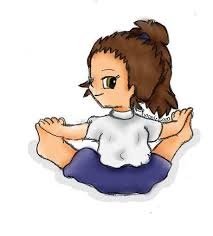Hi and welcome to our class blog!
This week’s blog is about our class economy. The class economy is a way for the teachers to reward us and to help us to take responsibility for our behaviour and work. It also provides a real life situation for handling money. We have to keep a record of what we make, spend and get fined, which gives us daily maths practice.
In our class economy you can make money, lose money and spend money.
How to make money
Everyone has a job in the class and every Friday they get paid £2 for doing their job. The jobs are Eco Monitor, Equipment Monitor, Mail Monitor, Bread Monitor, Teacher’s Assistant, Cloakroom Monitor, Hebrew Monitor, Finance Manager, Librarian and Merchant. You can also make money by coming in to school on time, handing in completed homework each week, being on task, ‘caught being good’, group points and receiving a positive comment from an adult.
How to spend money
Each month we have to pay rent for our desk and chair. We also have to pay rent for our text books. We need to pay if we would like a pencil, a rubber, a water cup, a new white board pen or if we need a replacement jotter because we have lost one. If we save up enough money we are able to buy a ‘Computer Pass’ that allows us to work on the computer all day or a ‘Sit with a Friend pass’ which allows us to sit with our friend for the day. If you’re kind enough you can give some money to charity.
How to lose money
Now people sometimes have to get fined in our class and you probably know that if you get fined you lose some money. You lose some money by going to the toilet during class, going to fill up your water bottle during class, not writing your name on work, not lining up sensibly, receiving a negative comment from another adult, not handing in homework, damaging property, leaving your coat on the floor in the cloakroom, producing messy work, shouting out and messing with the class economy.
This week’s blog was written by Daniel and Zak





![IMG_2239[1]](https://glow-prod-er.s3.eu-west-1.amazonaws.com/er/public/mchclclassof2018/uploads/sites/12464/2015/04/IMG_22391-300x225.jpg?X-Amz-Content-Sha256=UNSIGNED-PAYLOAD&X-Amz-Security-Token=IQoJb3JpZ2luX2VjEP7%2F%2F%2F%2F%2F%2F%2F%2F%2F%2FwEaCWV1LXdlc3QtMSJIMEYCIQCfIF5rKpOKSU9FRLVPxuVtdJmZb%2FHNUPgPjsXgD5bZqwIhALNuPn6TTCPmNKHb21sWLdjD5j1LGpX%2BiVowWdZWwmFcKrgFCGYQBRoMMjczNTcwMTk1NDMzIgwRHpyxxDbHfDNp6k4qlQWIY%2Fzay8BJYQ0Y864HKXxRgwz%2FznOQC4LAW8YE1PNiwFBhjRDyVTdl%2F3c7SFA6TPap9r2TJj7dB3Wol7qi7xLkV48xakMoqZvXwe5ZqH13SXY3BssEvKVb6QQKUwJm1ab9T2Kvzla8yep1yOtsVEd6wePbWXyDqgJJspbmu%2BCSpR%2BT%2Bh29KF10exDnq27ynbJQnRRekM5%2Fr0L%2FMN6bk1X4NnIqDCFdoRmBUF63rJYEx9zQQxPrD0SPVzKeNpa5tVjCfl4VxYNMU2UA3pMemHe9tJ69HRlDQ7Q27vpYRQsp5BaYvAgsyLoqcy1iHP%2B6qlCIjPHiBO89x9zF4Xua0ImhtvDGCw%2FB1xn3dgt4z2ijYNap%2BID%2B52wfTstFi%2B6tlKcCvHXrG3XsOKcHqP5E31ECl5G8d1UNeAhoWJPrnBk3A8vvIGZvQAPiVSJdQgJPhk7jmDg2%2Beg3YEYaN%2FVjfamfrepmDYzT7bKHNK%2FcHzEC%2BM7qJ%2Bh0%2BGhqc8oCGqrq2JOsvDYM%2Bdfy2fHsUKGgfR2yfW4WFEQtyw8M0gD6TJHx1DL4QkpMgzjDtgF6%2BFtuV3oF7Pbp5gAjCPwlxB%2BcDfOXLfw%2FdQeaq73T81l%2B53au0GkViL1TuMJoOWSR18L6UEMxCgvyy649yeQij1wf1XPCUnylfr%2FX3KrLDizSHPbRC8yX8Z9g9KYZieHQMb7OZvZ38pe41w6tD4cHR2D%2BUIQBgXtrZ%2BUGH4aVjSHZBGvsSJ4zSTizoqjGNjCfDSXjUIjCKBTPFvNrPPRHkYsp0fMki%2B35YqCiwpENwACYiLZpTzYGYbZ4MW7iu4m45UvGSVRongyLeB%2Fi4AdjJhoDizlXBglU5O0yuSmjwe2AAss8GSrnDrc4MIzkhLIGOrABWvDDUrm%2B21QeuUgxfEhcI4IeyY9JdFF%2BDOIfIHTjB8F7Tnwlj0dckoeuIm8Z%2FOlvDwC5QBrjmwBoO5FZw3eQLvjlmhoITr6mFYjMOFamaQrGofR39ywnFYW7wGG0k53iY3%2F18AKBkYx6EU5vo9XoCH78OmhvhIIw75MPEkQAo8qFTXLOvBzdfr%2FOEbple66idsmutAhashwhRelv215%2FDl1R8M4IjNxknviei1lwpZY%3D&X-Amz-Algorithm=AWS4-HMAC-SHA256&X-Amz-Credential=ASIAT7MQN47UV6XYSLLQ%2F20240512%2Feu-west-1%2Fs3%2Faws4_request&X-Amz-Date=20240512T212225Z&X-Amz-SignedHeaders=host&X-Amz-Expires=900&X-Amz-Signature=0eb2f52762f7fe40754114e7a0b39ba00d5a76cfb96d6b0798bb2ae1f950fc41)
![IMG_2238[1]](https://glow-prod-er.s3.eu-west-1.amazonaws.com/er/public/mchclclassof2018/uploads/sites/12464/2015/04/IMG_22381-300x225.jpg?X-Amz-Content-Sha256=UNSIGNED-PAYLOAD&X-Amz-Security-Token=IQoJb3JpZ2luX2VjEP7%2F%2F%2F%2F%2F%2F%2F%2F%2F%2FwEaCWV1LXdlc3QtMSJIMEYCIQCfIF5rKpOKSU9FRLVPxuVtdJmZb%2FHNUPgPjsXgD5bZqwIhALNuPn6TTCPmNKHb21sWLdjD5j1LGpX%2BiVowWdZWwmFcKrgFCGYQBRoMMjczNTcwMTk1NDMzIgwRHpyxxDbHfDNp6k4qlQWIY%2Fzay8BJYQ0Y864HKXxRgwz%2FznOQC4LAW8YE1PNiwFBhjRDyVTdl%2F3c7SFA6TPap9r2TJj7dB3Wol7qi7xLkV48xakMoqZvXwe5ZqH13SXY3BssEvKVb6QQKUwJm1ab9T2Kvzla8yep1yOtsVEd6wePbWXyDqgJJspbmu%2BCSpR%2BT%2Bh29KF10exDnq27ynbJQnRRekM5%2Fr0L%2FMN6bk1X4NnIqDCFdoRmBUF63rJYEx9zQQxPrD0SPVzKeNpa5tVjCfl4VxYNMU2UA3pMemHe9tJ69HRlDQ7Q27vpYRQsp5BaYvAgsyLoqcy1iHP%2B6qlCIjPHiBO89x9zF4Xua0ImhtvDGCw%2FB1xn3dgt4z2ijYNap%2BID%2B52wfTstFi%2B6tlKcCvHXrG3XsOKcHqP5E31ECl5G8d1UNeAhoWJPrnBk3A8vvIGZvQAPiVSJdQgJPhk7jmDg2%2Beg3YEYaN%2FVjfamfrepmDYzT7bKHNK%2FcHzEC%2BM7qJ%2Bh0%2BGhqc8oCGqrq2JOsvDYM%2Bdfy2fHsUKGgfR2yfW4WFEQtyw8M0gD6TJHx1DL4QkpMgzjDtgF6%2BFtuV3oF7Pbp5gAjCPwlxB%2BcDfOXLfw%2FdQeaq73T81l%2B53au0GkViL1TuMJoOWSR18L6UEMxCgvyy649yeQij1wf1XPCUnylfr%2FX3KrLDizSHPbRC8yX8Z9g9KYZieHQMb7OZvZ38pe41w6tD4cHR2D%2BUIQBgXtrZ%2BUGH4aVjSHZBGvsSJ4zSTizoqjGNjCfDSXjUIjCKBTPFvNrPPRHkYsp0fMki%2B35YqCiwpENwACYiLZpTzYGYbZ4MW7iu4m45UvGSVRongyLeB%2Fi4AdjJhoDizlXBglU5O0yuSmjwe2AAss8GSrnDrc4MIzkhLIGOrABWvDDUrm%2B21QeuUgxfEhcI4IeyY9JdFF%2BDOIfIHTjB8F7Tnwlj0dckoeuIm8Z%2FOlvDwC5QBrjmwBoO5FZw3eQLvjlmhoITr6mFYjMOFamaQrGofR39ywnFYW7wGG0k53iY3%2F18AKBkYx6EU5vo9XoCH78OmhvhIIw75MPEkQAo8qFTXLOvBzdfr%2FOEbple66idsmutAhashwhRelv215%2FDl1R8M4IjNxknviei1lwpZY%3D&X-Amz-Algorithm=AWS4-HMAC-SHA256&X-Amz-Credential=ASIAT7MQN47UV6XYSLLQ%2F20240512%2Feu-west-1%2Fs3%2Faws4_request&X-Amz-Date=20240512T212225Z&X-Amz-SignedHeaders=host&X-Amz-Expires=900&X-Amz-Signature=78374ac287a989948ecf48581b289fe86ce8e4096a82680486445ed942023c85)

